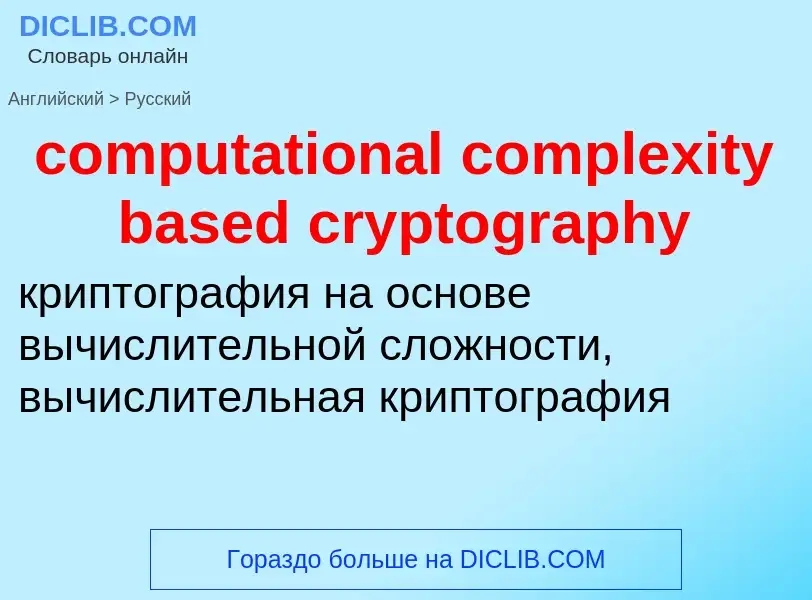Translation and analysis of words by ChatGPT artificial intelligence
On this page you can get a detailed analysis of a word or phrase, produced by the best artificial intelligence technology to date:
- how the word is used
- frequency of use
- it is used more often in oral or written speech
- word translation options
- usage examples (several phrases with translation)
- etymology
computational complexity based cryptography - translation to russian
математика
асимптотическая сложность
общая лексика
вычислительная сложность
число шагов или арифметических операций, требуемых для решения вычислительной проблемы
Смотрите также
Definition
Wikipedia
In computer science, the computational complexity or simply complexity of an algorithm is the amount of resources required to run it. Particular focus is given to computation time (generally measured by the number of needed elementary operations) and memory storage requirements. The complexity of a problem is the complexity of the best algorithms that allow solving the problem.
The study of the complexity of explicitly given algorithms is called analysis of algorithms, while the study of the complexity of problems is called computational complexity theory. Both areas are highly related, as the complexity of an algorithm is always an upper bound on the complexity of the problem solved by this algorithm. Moreover, for designing efficient algorithms, it is often fundamental to compare the complexity of a specific algorithm to the complexity of the problem to be solved. Also, in most cases, the only thing that is known about the complexity of a problem is that it is lower than the complexity of the most efficient known algorithms. Therefore, there is a large overlap between analysis of algorithms and complexity theory.
As the amount of resources required to run an algorithm generally varies with the size of the input, the complexity is typically expressed as a function n → f(n), where n is the size of the input and f(n) is either the worst-case complexity (the maximum of the amount of resources that are needed over all inputs of size n) or the average-case complexity (the average of the amount of resources over all inputs of size n). Time complexity is generally expressed as the number of required elementary operations on an input of size n, where elementary operations are assumed to take a constant amount of time on a given computer and change only by a constant factor when run on a different computer. Space complexity is generally expressed as the amount of memory required by an algorithm on an input of size n.

